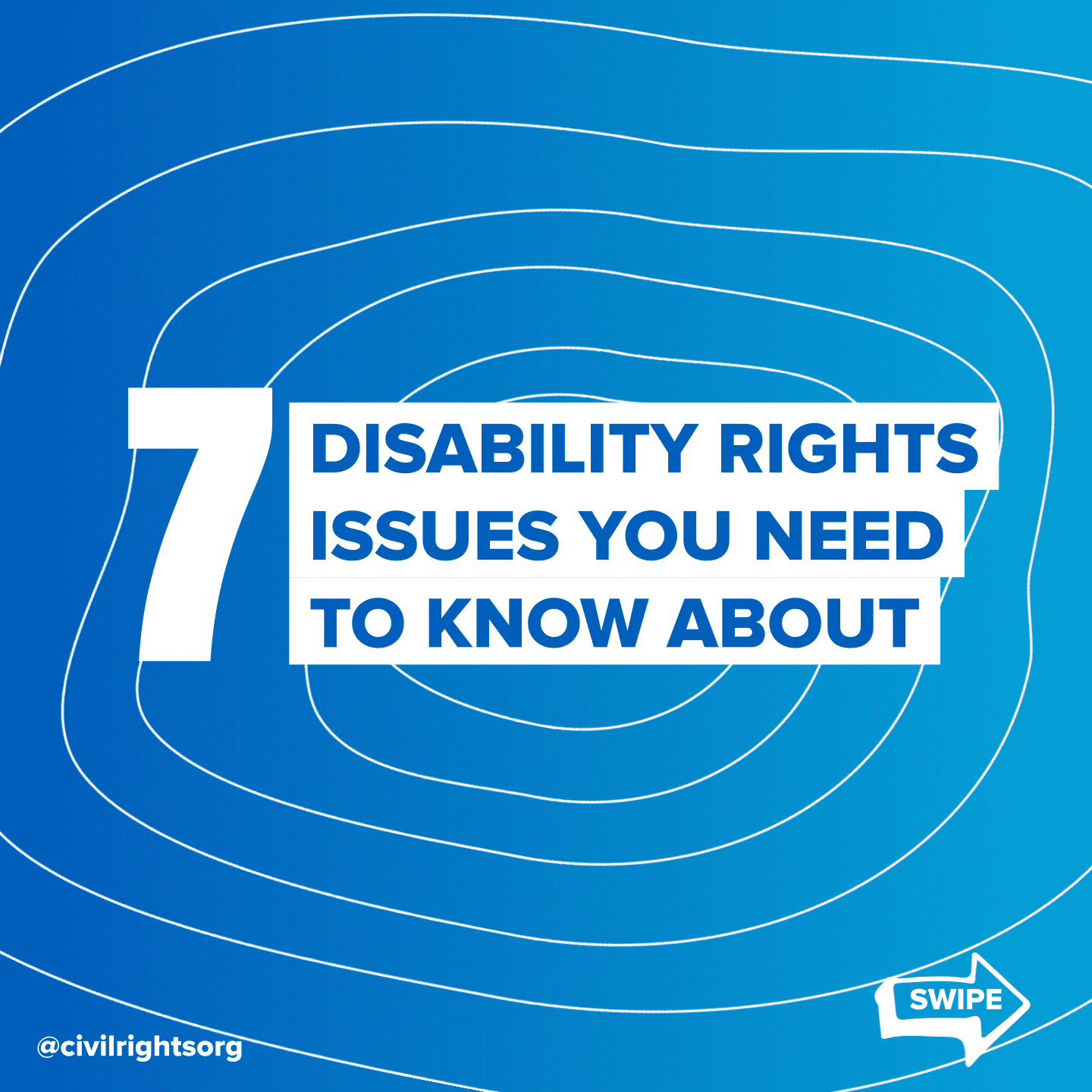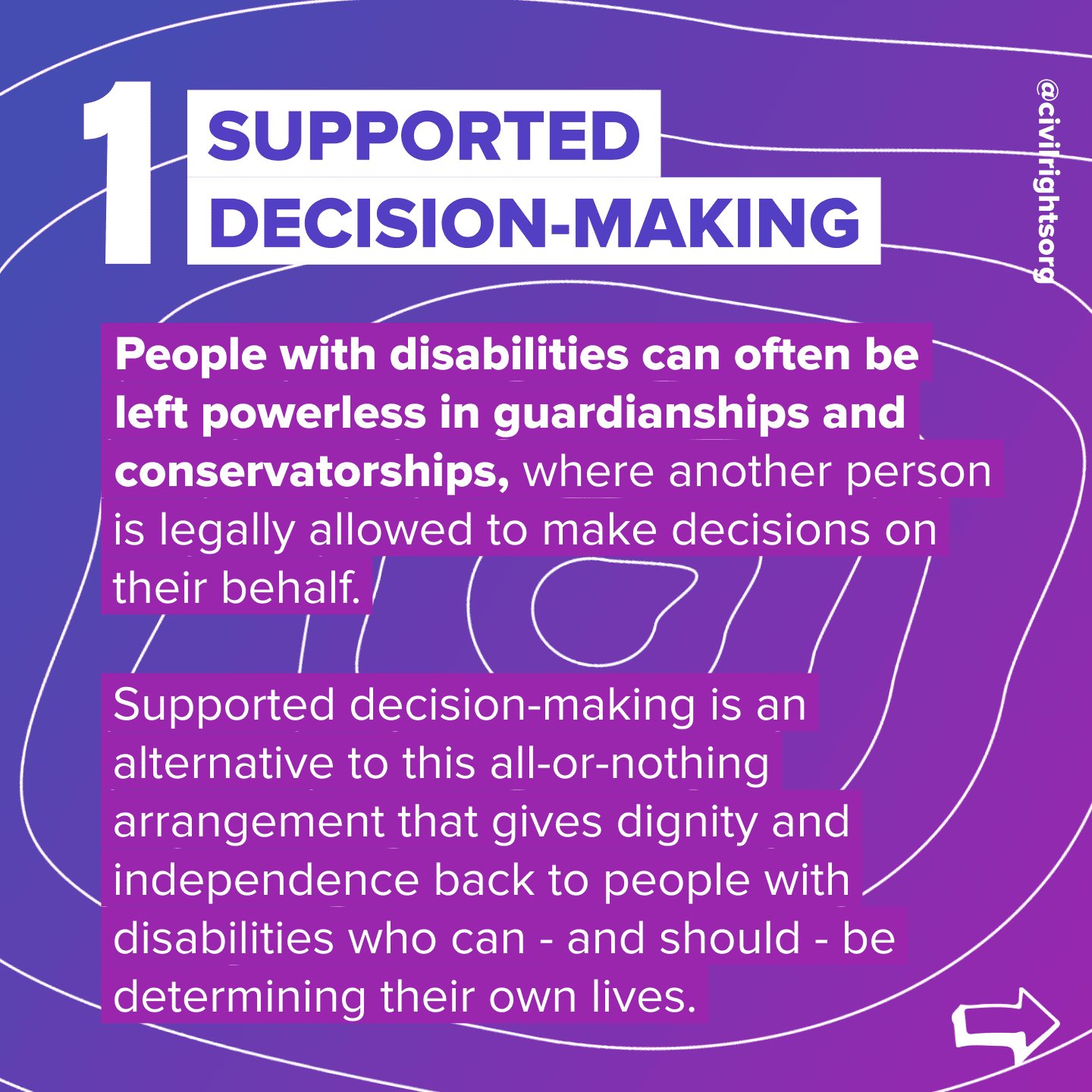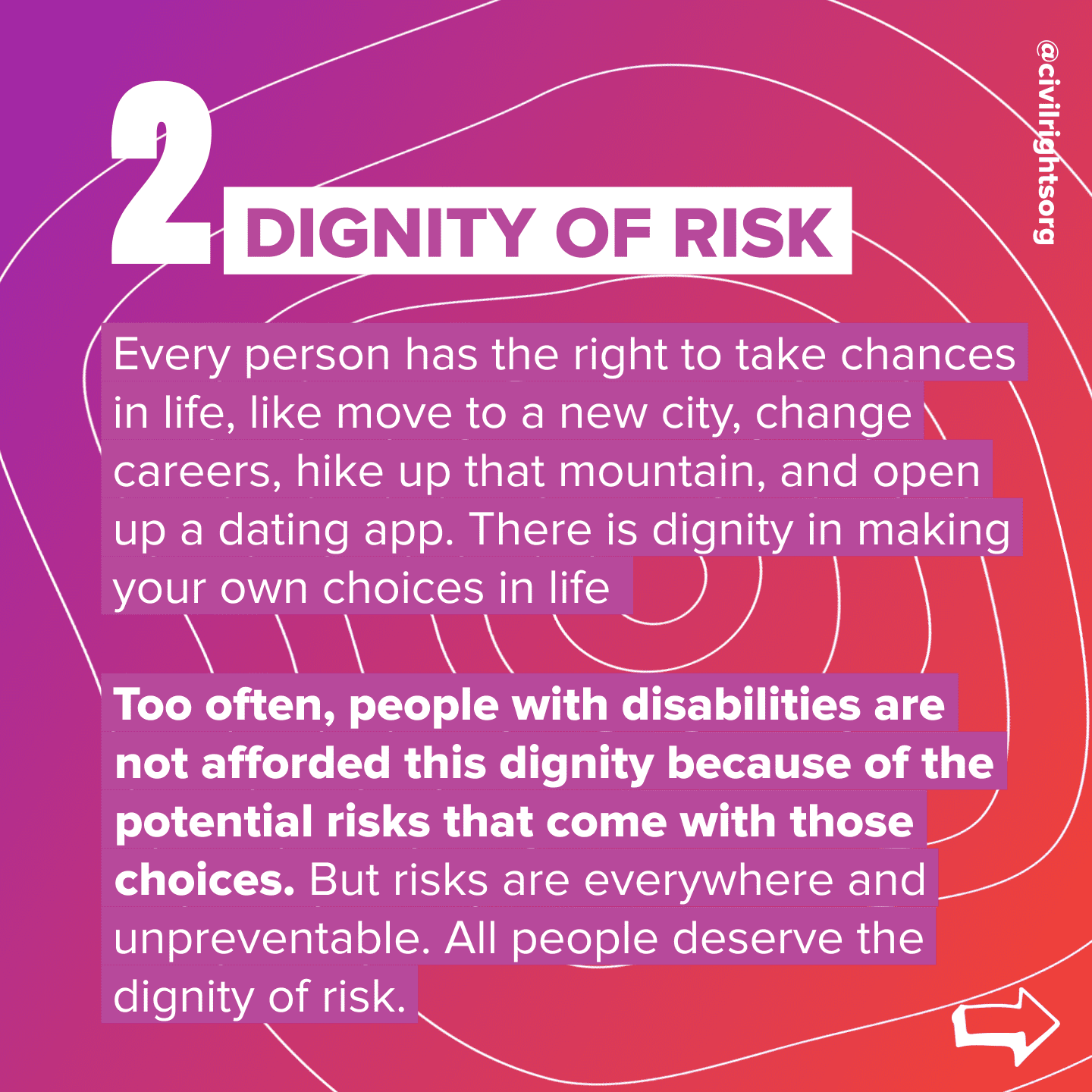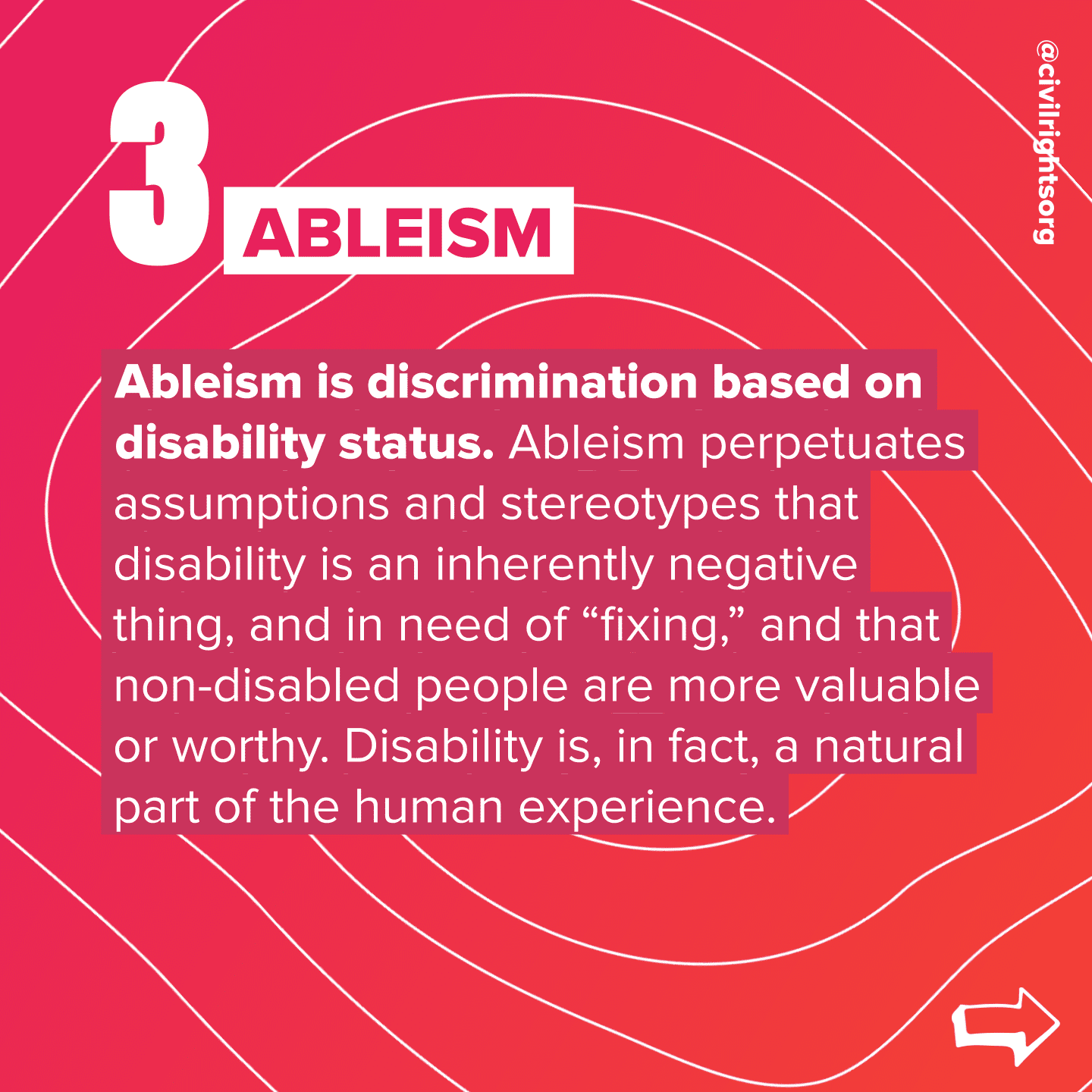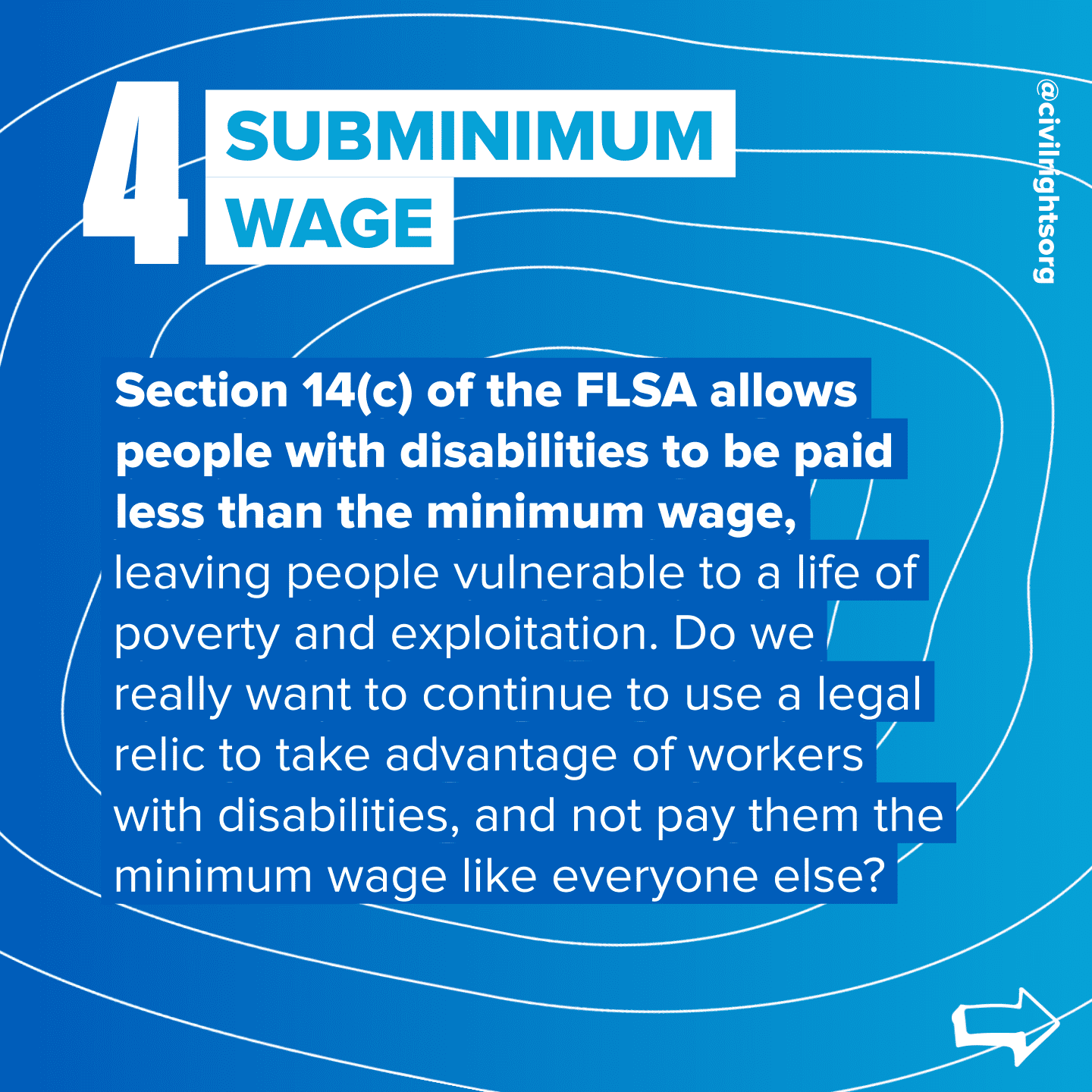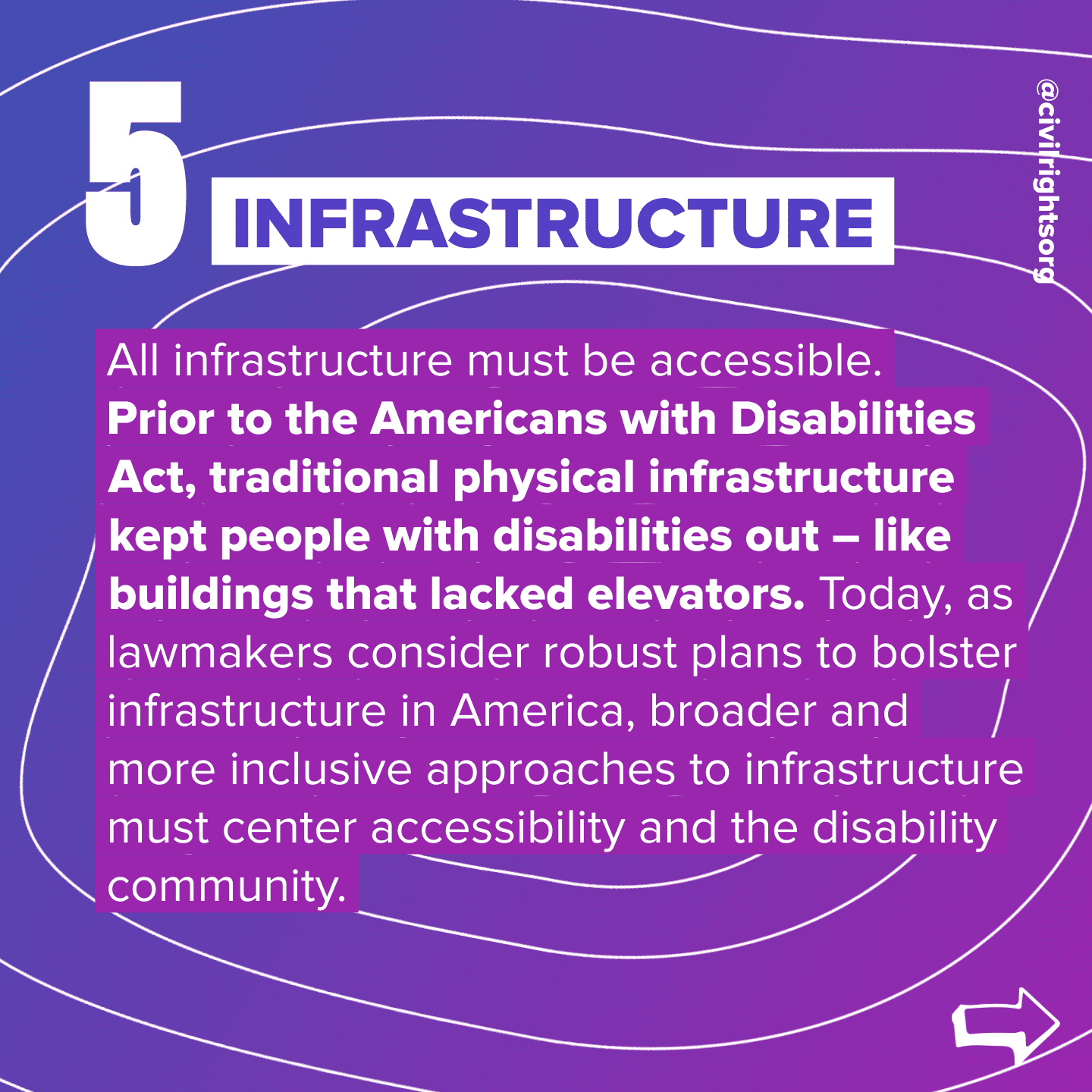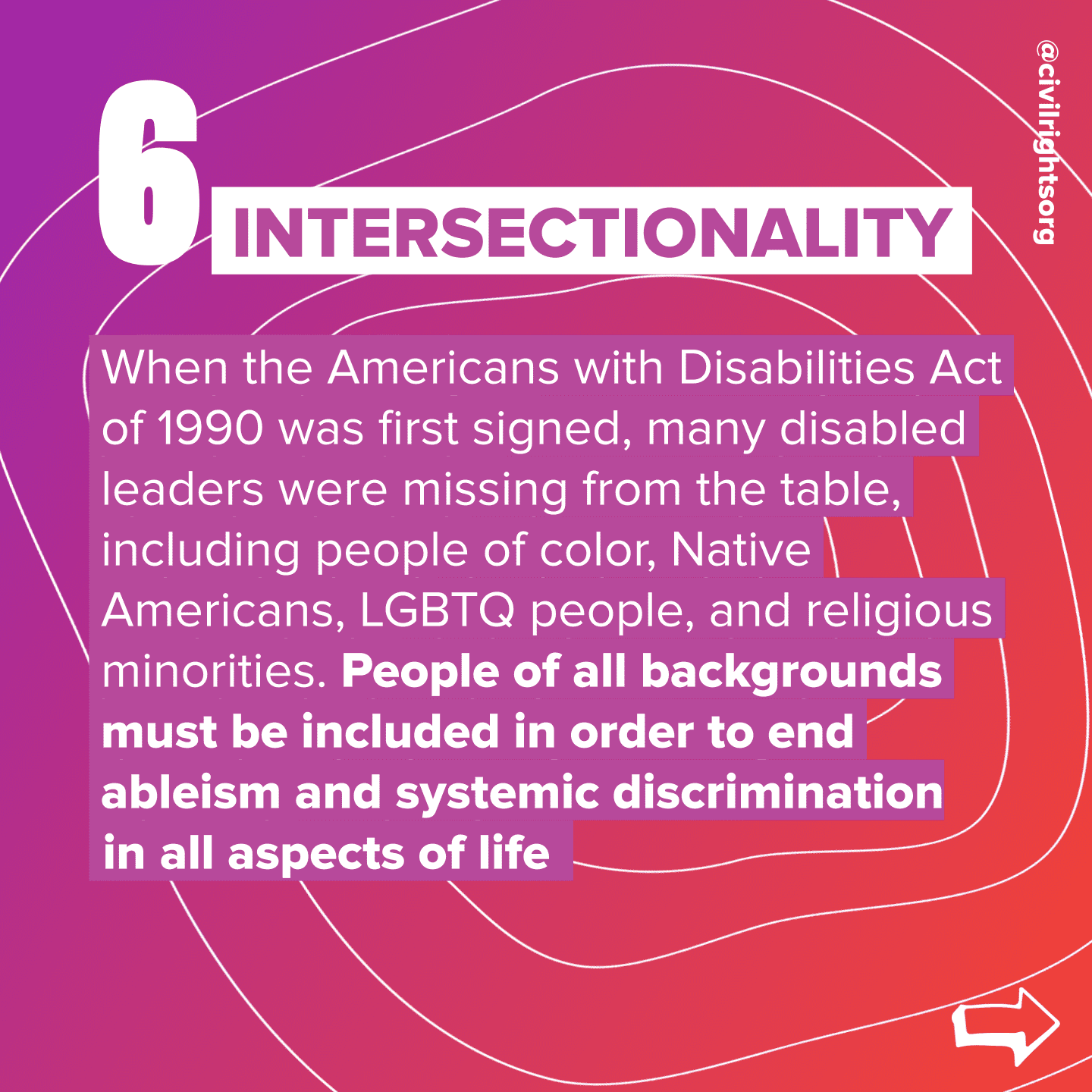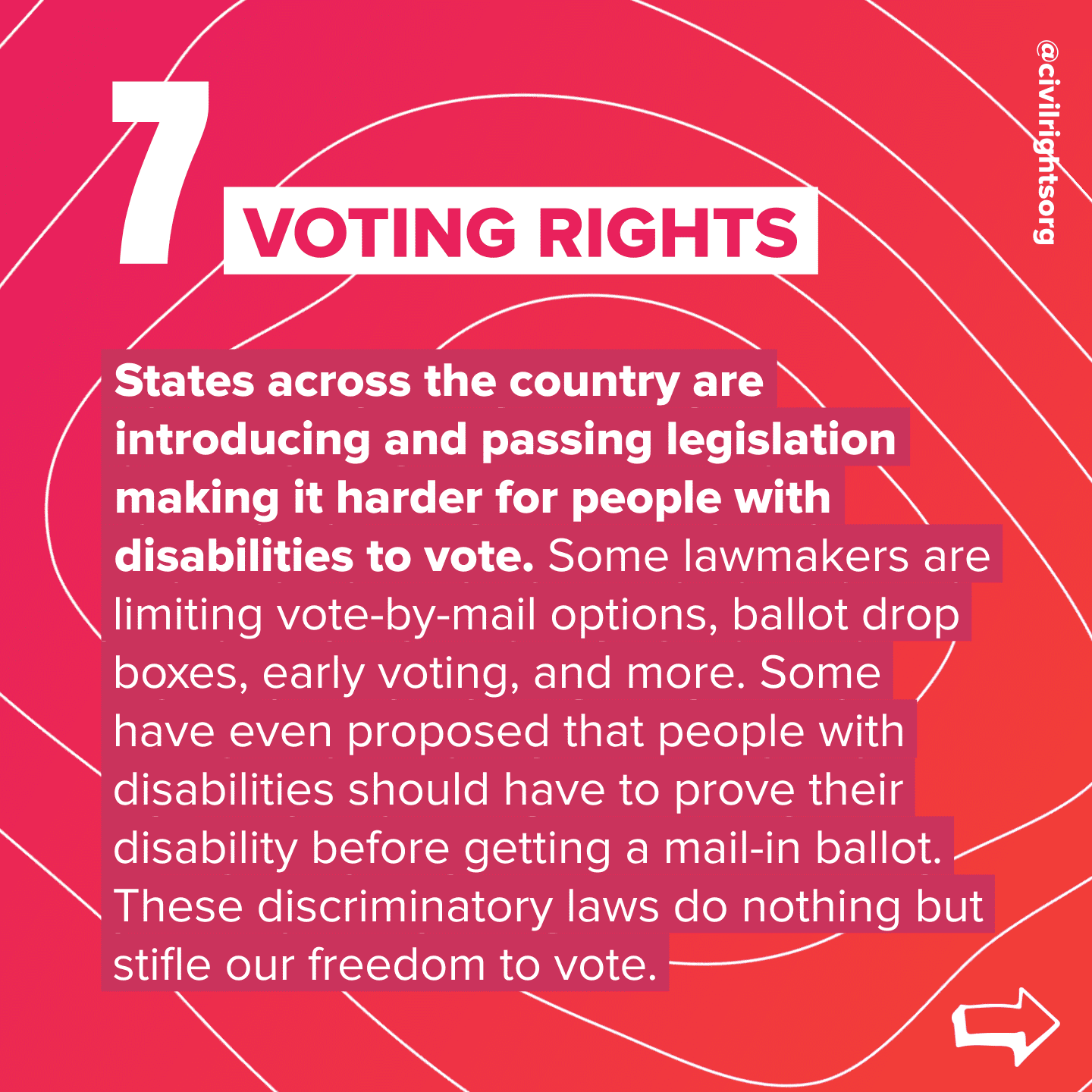For the 31st anniversary of the landmark Americans with Disabilities Act, we partnered with The Leadership Conference on Civil and Human Rights to explore some disability rights issues you need to know and care about. Because here’s the truth: More than three decades after passage of the ADA, there is so much work left to do to ensure that the ADA’s goal of full participation and inclusion is a reality for ALL people with disabilities. Never forget this: Disability rights are civil and human rights!
You can share the following graphics on The Leadership Conference’s Instagram.
